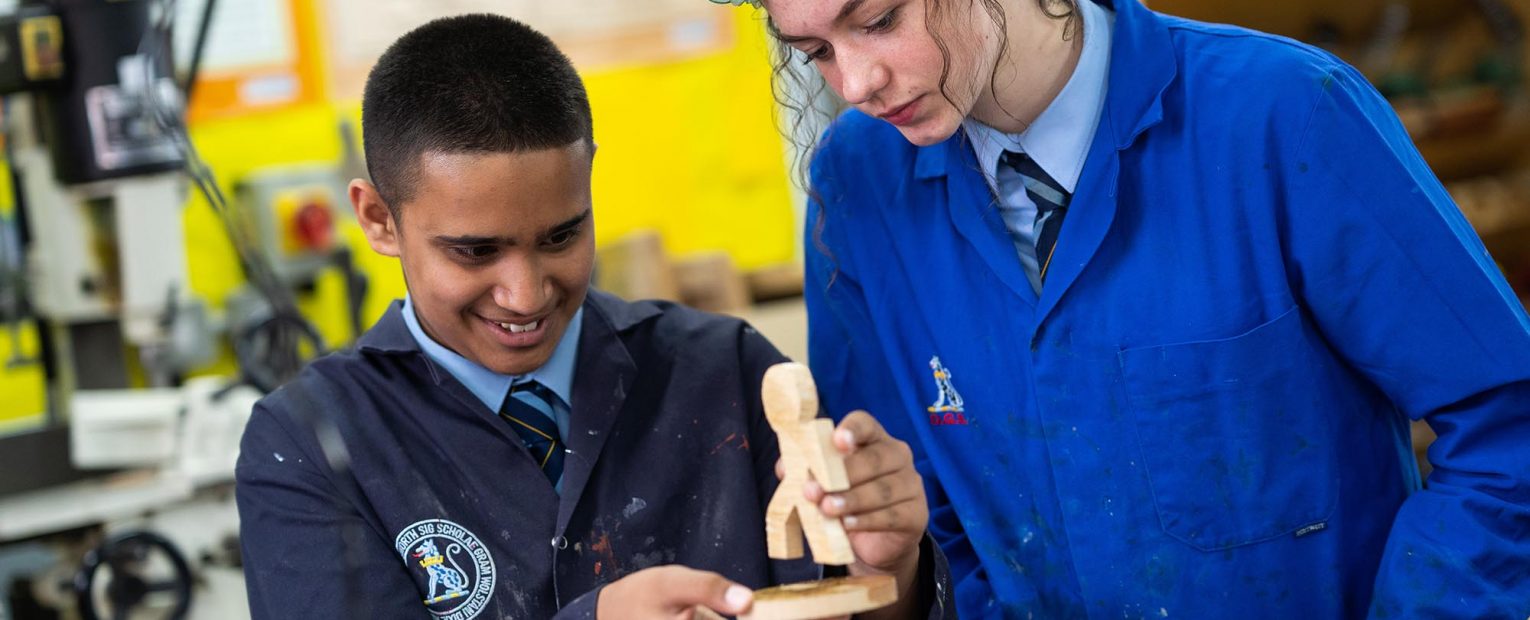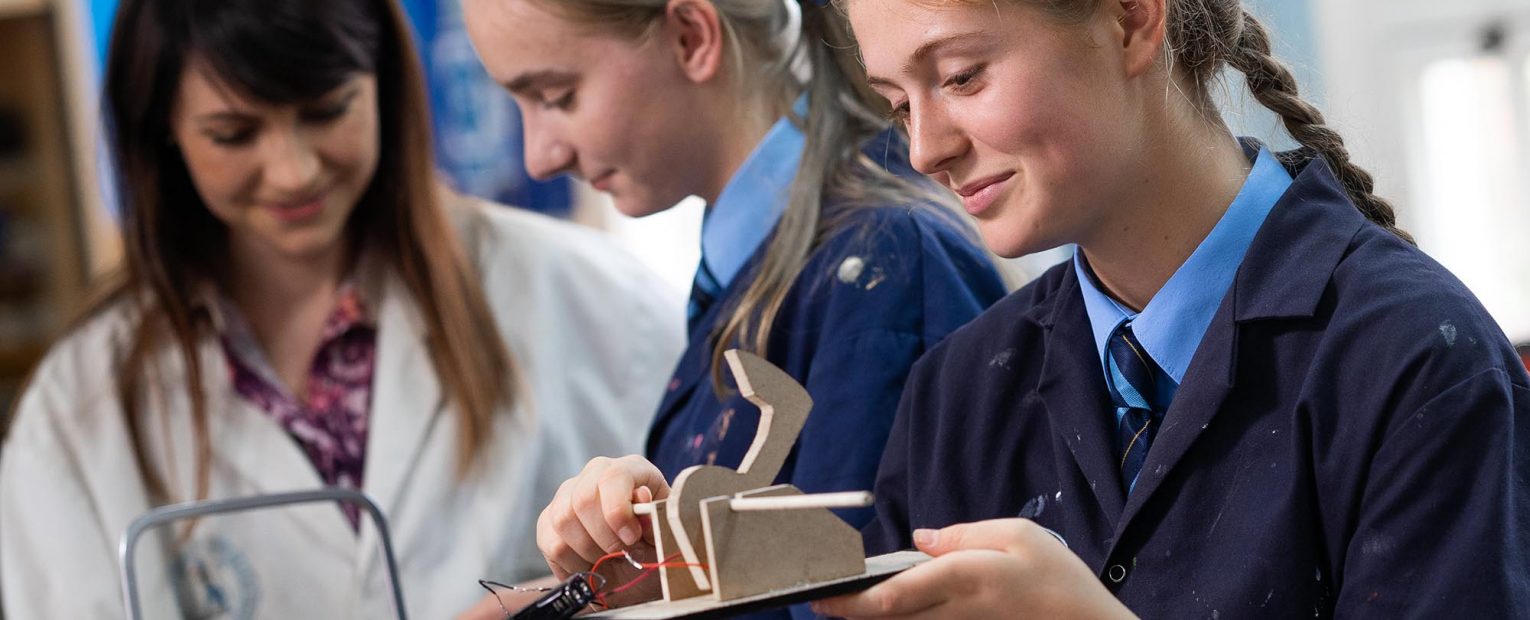What are the positive and negative effects on pupils’ achievement and personal development?
The conditions necessary for young people to thrive in school have been the subject of a great number of studies. Dixie school life has been carefully constructed to reflect many of these – initially through the sound educational instincts of previous Heads and Governors, now backed up by a wealth of research. The summaries of this over-arching research (meta-studies) point to some of the most powerful influences on pupil success in school as well as those factors which research shows do harm.
The most positive indicators for pupils who thrive in school are participation in the arts, collaborative learning, outdoor adventure learning, parental engagement, and sports participation. These are deeply embedded in the Dixie education and we see the positive effects of the creative subjects (including Design and Technology), the value of Forest School and DOSE (Dixie Open Skies Education) in helping our youngest students learn the skills of collaboration in an outdoors setting, the positive impact our parents have in school, and the value of a rich sporting timetable in our thriving, happy students. At the Dixie, emphasis in sports is on participation and forming healthy habits for life, and we are delighted that so many parents add to our rich diet of co-curricular activities.
One of the most negative indicators for pupil success is the practice of making students repeat a year. Research shows it puts pupils back on average four months in their development and is not endorsed by either the Government, Local Authority or the Dixie; it stifles achievement long term and only in exceptional circumstances is it in the student’s best interests. Whilst repeating a year is very rare in the UK, evidence suggests that, in the majority of cases, it is harmful to a student’s long term chances of academic success.
The Dixie has a very different ethos to other schools in the area and has a holistic and more rounded view of achievement. Not everyone will achieve a full set of 9s at GCSE (but many will) and nor should success be measured purely in that way. At the Dixie provision is made for everyone to reach their full potential. We have a wider range of abilities than in some schools, but we do not ‘weed out’ or remove our worst performing students – or make them repeat a year if we feel their performance might harm our external data. We understand that children learn at different rates, that progression is not linear – some may take two years to learn something that for others takes one year – learning at the Dixie is personalised, not just repeated. If a child doesn’t make progress over a year then the barriers need considering and removing. Simply repeating the same thing will not help; indeed, that shouldn’t take a year to realise!
The Dixie prioritises the development of each individual student – we take more care over individuals than we do the school’s external data. Our holistic approach is more than just the development of the individual – we nurture pupils’ understanding of how they connect to the wider world. At the Dixie we understand that active involvement outside the classroom, and the effect this can have on confidence, can transform achievement inside the classroom – just as the wealth of educational research tells us.



